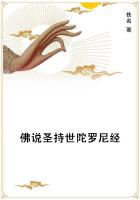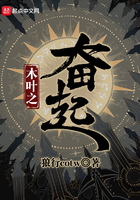"I tell thee, priest, if the world were wise They would not wag one finger in your quarrels:
Your heaven you promise, but our earth you covet;
The Phaetons of mankind, who fire the world Which you were sent by preaching but to warm."
Your Saviour came not with a gaudy show, Nor was His kingdom of the world below:
The crown He wore was of the pointed thorn In purple He was crucified, not born.
They who contend for place and high degree Are not His sons, but those of Zebedee."
--DRYDEN.
The exalted state of mind which the victorious men had brought home with them did not vanish with sleep. The same heroic atmosphere was in the house in the morning. Antonia's face had a brightness upon it that never yet was the result of mere flesh and blood. When she came into the usual sitting-room, Dare was already there; indeed, he had risen purposely for this hour. Their smiles and glances met each other with an instantaneous understanding. It was the old Greek greeting "REJOICE!" without the audible expression.
Never again, perhaps, in all their lives would moments so full of sweetness and splendor come to them. They were all the sweeter because blended with the homely duties that fell to Antonia's hands. As she went about ordering the breakfast, and giving to the table a festal air, Dare thought of the old Homeric heroes, and the daughters of the kings who ministered to their wants. The bravest of them had done no greater deeds of personal valor than had been done by the little band of American pioneers and hunters with whom he had fought the last four days. The princes among them had been welcomed by no sweeter and fairer women than had welcomed his companions and himself.
And, though his clothing was black with the smoke of the battle and torn with the fray, never had Dare himself looked so handsome. There was an unspeakable radiance in his fair face. The close, brown curls of his hair; his tall figure, supple and strong; his air of youth, and valor, and victory; the love-light in his eyes; the hopes in his heart, made him for the time really more than a mere mortal man. He walked like the demi-gods he was thinking of. The most glorious ideal of life, the brightest dream of love that he had ever had, found in this hour their complete realization.
The Senora did not come down; but Isabel and Luis and the doctor joined the breakfast party. Luis had evidently been to see Lopez Navarro before he did so; for he wore a new suit of dark blue velvet and silver, a sash of crimson silk, the neatest of patent leather shoes, and the most beautifully embroidered linen. Dare gave him a little smile and nod of approbation. He had not thought of fine clothing for himself; but then for the handsome, elegant, Mexican youth it seemed precisely the right thing. And Isabel, in her scarlet satin petticoat, and white embroideries and satin slippers, looked his proper mate. Dare and Antonia, and even the doctor, watched their almost childlike devotion to each other with sympathetic delight.
Oh, if such moments could only last! No, no; as a rule they last long enough. Joy wearies as well as sorrow. An abiding rapture would make itself a sorrow out of our very weakness to bear it. We should become exhausted and exacting, and be irritated by the limitations of our nature, and our inability to create and to endure an increasing rapture. It is because joy is fugitive that it leaves us a delightsome memory. It is far better, then, not to hold the rose until it withers in our fevered hand.
The three women watched their heroes go back to the city. The doctor looked very little older than his companions. He sat his horse superbly, and he lifted his hat to the proud Senora with a loving grace which neither of the young men could excel. In that far back year, when he had wooed her with the sweet words she taught him, he had not looked more manly and attractive. There is a perverse disposition in women to love personal prowess, and to adore the heroes of the battle-field; and never had the Senora loved her husband as she did at that hour.
In his capacity of physician he had done unnoticed deeds of far greater bravery--gone into a Comanche camp that was being devastated by smallpox--or galloped fifty miles; alone in the night, through woods haunted by savage men and beasts, to succor some little child struggling with croup, or some frontiersman pierced with an arrow. The Senora had always fretted and scolded a little when he thus exposed his life.
But the storming of the Alamo! That was a bravery she could understand. Her Roberto was indeed a hero! Though she could not bring herself to approve the cause for which he fought, she was as sensitive as men and women always are to victorious valor and a successful cause.
Rachela was in a state of rebellion. Nothing but the express orders of Fray Ignatius, to remain where she was, prevented her leaving the Worths; for the ******* so suddenly given to Isabel had filled her with indignation. She was longing to be in some house where she could give adequate expression to the diabolical temper she felt it right to indulge.
In the afternoon it was some relief to see the confessor coming up the garden. He had resumed his usual deliberate pace. His hands were folded upon his breast. He looked as the mournful Jeremiah may have looked, when he had the burden of a heavy prophecy to deliver.
The Senora sat down with a doggedly sullen air, which Antonia understood very well. It meant, "I am not to be forced to take any way but my own, to-day"; and the wise priest understood her mood as soon as he entered the room. He put behind him the reproof he had been meditating. He stimulated her curiosity; he asked her sympathy. No man knew better than Fray Ignatius, when to assume sacerdotal authority and when to lay it aside.
And the Senora was never proof against the compliment of his personal friendship. The fight, as it affected himself and his brotherhood and the convent, was full of interest to her.















